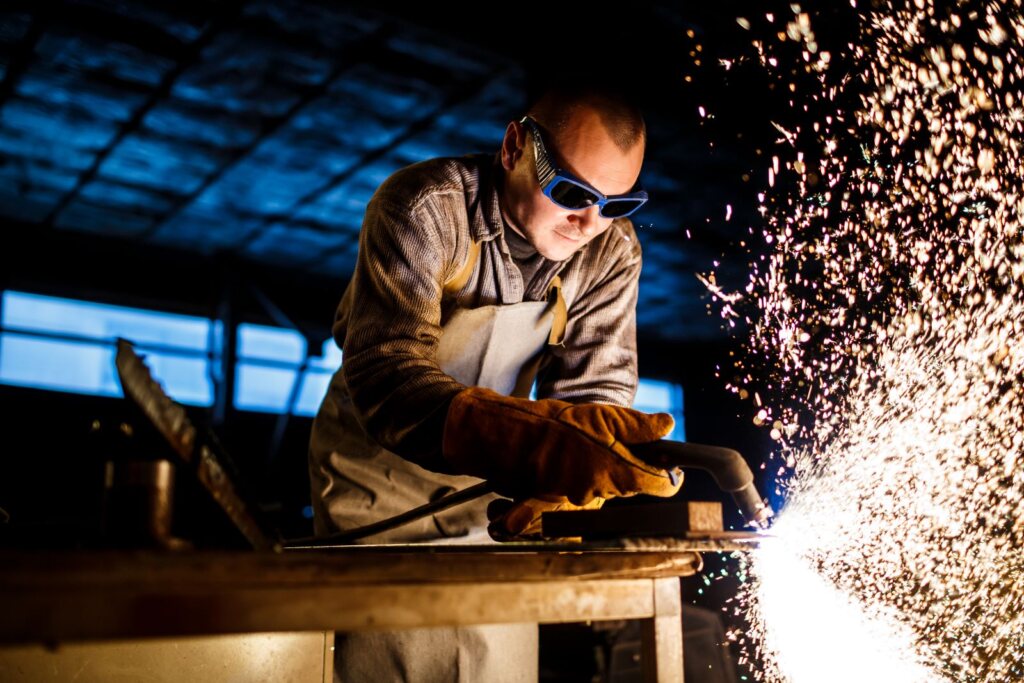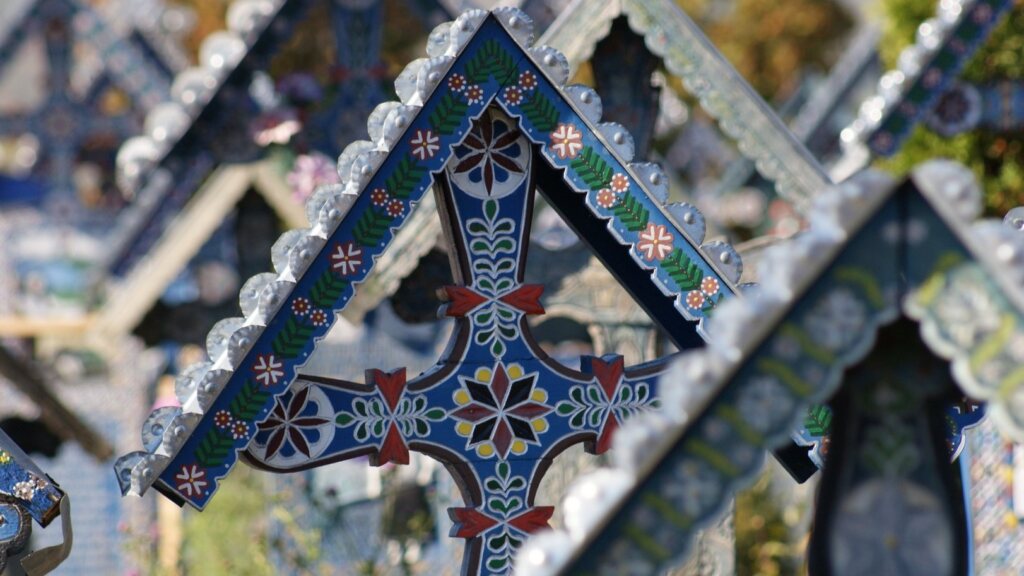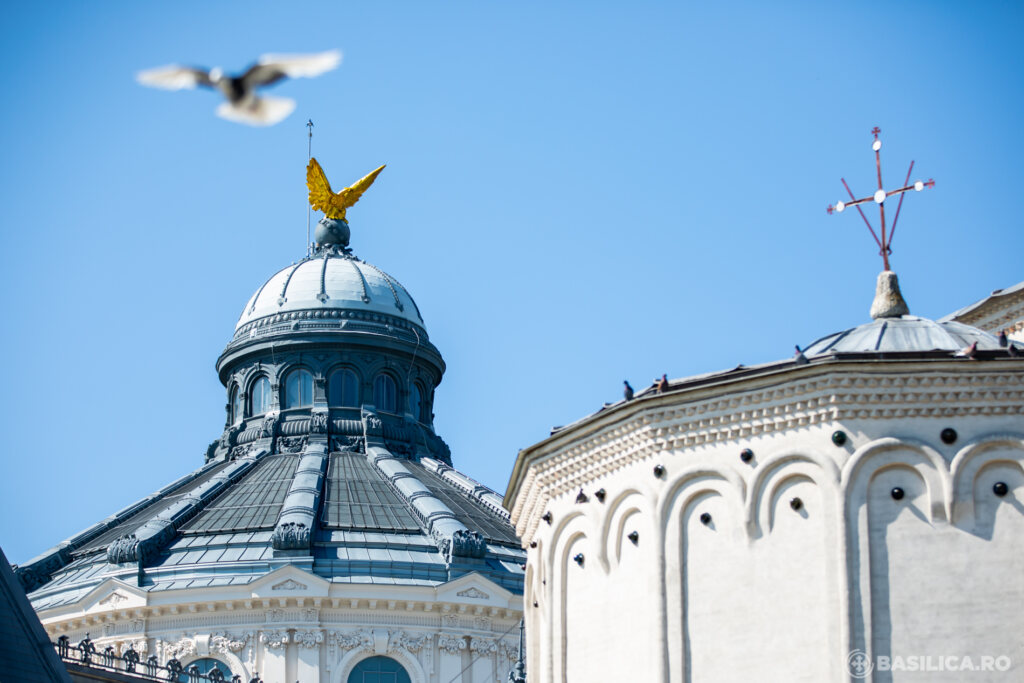His Beatitude Daniel, Patriarch of the Romanian Orthodox Church explained, in the sermon delivered on 11 August 2013, at Cernica Monastery, the significance of the Evangelical pericope of the 7th Sunday after the Pentecost of the Gospel according to Saint Evangelist Matthew, chapter 9, lines 27 – 35, presenting the Healing of the two blind men and of a dumb one of Capernaum by Jesus Christ, our Lord.
Faith must live first of all in the heart, as a strong persistent conviction that only God can help us in time of trouble
The Patriarch of Romania showed that “We learn (in today’s Gospel) the fact that Jesus Christ, our Lord, has the divine power to heal. But He does not heal to be praised by people, but out of merciful love for the people. We shall see first of all that He wants faith from the two blind men and persistence because He has not healed them at His first encounter with them, but let them persist in their prayer to be healed; but when Christ asked them: “Do you believe that I can do that?”, those who believed confessed their faith. Certainly, they believed as long as they came to Jesus and asked Him to have mercy for them, to heal them. But now, Christ, our Lord, asks them to confess their faith to other people. Therefore, it is not enough to say in our mind “I believe”, and not to confess that we are Orthodox Christians when faced with other people. Thus, faith must live first of all in the heart as a strong constant conviction that only God can help us in time of trouble, in hard conditions. It is only He, who can give life and good health that can heal the blind and make the dumb talk.”
Gratitude is a spiritual good health of the human
The Primate of the Romanian Orthodox Church has also spoken about gratitude: “Thus, these two blind men are called by Jesus to confess their faith, but the Saviour tells them: “Don’t tell anything about that to anybody”. In other words, He asks them not to praise with the fact that He has healed them and neither pray the One who healed them.
Here we see the lowliness of the Saviour who shows us that we must not expect praises as soon as we have done good to somebody and neither should we expect our name to be talked about because we have done good. On the other hand, although He urged them not to talk about this wonderful healing, the two blind men could not help doing it. Their joy for seeing the light of the day, the faces of the people, the blue sky, and the life around them was so great, that they could not help telling everywhere how much good God has done to them. Gratitude is the spiritual good health of the man. Ungratefulness is a disease. When the Saviour has healed ten leprous men only one of them came back to thank Him, so that He asked: “Where are the other nine”? He healed ten, but only one of them thanked Him. This percentage is still valid today. One of ten people to whom we do good, hardly remembers to thank us.
Envy is a fierce passion feeding on other people’s welfare
The evangelical pericope teaches us the value of the strong prayer and of the gratitude for the good received from God and from the fellow beings, the Patriarch of Romania has also explained: “The dumb man has also come to Jesus, but He has not asked him to prove his faith, He has not asked him: “Do you believe that I can heal you? Why that? First of all because he was dumb and could not talk, and secondly he could no longer think with his mind or do something as he thought, because he was possessed by the evil one who was torturing him. He was a bedevilled man who could no longer talk or think, or do anything fully aware, with all his soul. Christ, our Lord, heals this man out of merciful love without asking him anything. Then, the Gospel shows us that the crowds rejoiced and the envious were sad. The ordinary people rejoiced seeing two blind men healed and a dumb one released from under the possession of the devil, but the envious and sly ones were sad. Therefore, the Gospel shows us that envy is a fierce passion feeding on other people’s good. The better people live, the more grieved the envious one is, and the more suffers in his soul. This time, the Saviour has not answered the envious gossipers who said that He chased away the demons with the power of the demons. His deeds spoke for themselves, because He went to all cities and villages and healed all the diseases and helplessness of the people. The Gospel urges us today to strong confessed faith, not only in mind. He urges us to persistent in prayer. When we ask for something we must insist. We learn the confessing faith, insistent prayer and the strong gratitude of the two blind men healed. We also learn from the Gospel to rejoice when a sick man was healed, not to be grieved. And, Saint Paul the Apostle says: “Rejoice with those who rejoice, and weep with those who weep”. This is the good health of the man’s soul compared to his fellow beings.”
The Mother of God rewards those who venerate her
His Beatitude Patriarch Daniel emphasised the help that the Mother of God gives those who venerate her and spoke about the fasting of this time: “This Gospel of the healing is listened to during the fast of the Mother of God. It is a period of spiritual preparation for the feast of the Mother of God who passed through death, but did not remain in death, because she was moved by her Son not only with her soul, but also with her body to Heaven, three days after her death. This is why her death is called falling asleep and moving from this temporary earthly life to the permanent life, because she is the Mother of the life that gave birth to the Son of God, the Saviour of the world, as man. Thus, today’s Gospel, during the Fasting of Saint Mary is a Gospel that shows us that we need healing. It is the healing of the body and of the soul too, got through the confession of faith, as well as through the often confessions of the sins at confession, and through the praise of God, to the Mother of God and to the saints through whom God works and often helps in a wonderful way. This period of fasting is a time of great spiritual joy because the Mother of God rewards those who venerate her, who pray to her and praise her with great joy in the soul and much peace. This is why we sing “Rejoice the one through whom joy comes, Rejoice the raising of the fallen tears of Eve, Rejoice the joy of the grieved ones”, of the sad ones, whom nobody loves, but she loves them with a mother’s merciful love. The Mother of God represents the Church in prayer. She is the living icon of the Church which hopes in God more than in the humans and feels the peace and joy of God which is mysteriously bestowed in the humans’ souls as a result of the prayers, fasting and mercy. So, let us unite prayer and mercy at this time. If we have no money or material products to give to the poor we can give them good words, a prayer for somebody else, a helpful hand, a visit to a sick, old, deserted person. All these are deeds of spiritual mercy. Our very presence and our time near a discouraged human is a merciful deed, a gift many times more important than a loaf of bread or some money for those who are lonely and abandoned, forgotten or marginalized”.
To end with, father Maxim Badoiu, abbot of Cernica Monastery was raised to the rank of archimandrite. His Beatitude has also offered to the altar and library of Cernica Monastery several books recently published at the publishing houses of the Romanian Patriarchate, and small crosses to the faithful present.
The abbot of Cernica Monastery offered His Beatitude Patriarch Daniel an icon of Jesus Christ, our Saviour, as thanksgiving sign.
Next Sunday, the Orthodox Church will be on the 7th Sunday after the Pentecost.
Photo: “Lumina” newspaper






